The use of drugs as a quick fix doesn’t help kids become resilient to stress or emotionally mature.
By Erica KomisarMarch 6, 2019 7:03 p.m. ET

PHOTO: GETTY IMAGES/ISTOCKPHOTO
A couple came to my psychotherapy office because their 8-year-old son was having trouble at school. He couldn’t sit still or focus on class work, and sometimes he’d act disruptively to get attention. The school had labeled the boy as having attention deficit and hyperactivity disorder and urged the parents to see a psychiatrist—who immediately prescribed a stimulant.
American children have a drug problem. The use of psychiatric drugs to treat ADHD, depression and anxiety in children and teens has been increasing and is excessive. The family I saw was a case in point. The medication suppressed the boy’s behavior, but it also made him anxious, irritable and sleepless. His parents came to me seeking an alternative.
I asked questions about the family’s history and learned that mother had suffered from postpartum depression and the parents had separated when the boy was 3, later to be reunited. The son was a sensitive and fearful child, who suffered from anxiety and whose ADHD-like symptoms were first observed after his father left the home.
The family had never sought therapy or made the connection between the boy’s early-childhood experience and his symptoms. I held parent-guidance sessions with the parents and referred the boy to a child psychotherapist for his anxiety. He was weaned off the medication, and his symptoms diminished.
A study published last year in the Journal of Clinical Child & Adolescent Psychology found that some 5% of American children were on stimulants like Ritalin and Adderall to treat ADHD and behavioral problems in 2016. The Centers for Disease Control and Prevention reported a nearly 400% increase in antidepressant use in patients between 12 and 19 between 1988 and 2008, the most recent year for which data are available.
Yet many of these young people don’t actually have ADHD, clinical depression or anxiety. A 2000 study found that the majority of children and adolescents who were being medicated for ADHD did not fully meet the diagnostic criteria for the condition—criteria that are so subjective that a 2018 study in the New England Journal of Medicine showed that the younger a child is relative to his classmates, the likelier he is to be diagnosed with ADHD. That finding suggests the disruptive behavior is the result of immaturity, not illness.
The American Academy of Pediatrics recommends behavioral therapy, not drugs, as the first line of treatment for mental illness in children. But a 2014 Ohio State study showed that the majority of kids aren’t being properly evaluated or being offered psychotherapy before being medicated. That’s an expedient course, but not a wise one.
Psychiatric drugs can often stop undesirable behaviors and silence the symptoms of emotional pain. But the use of drugs as a quick fix does not help children become emotionally mature or resilient to stress. Instead it teaches them to avoid painful or uncomfortable feelings. Medications can also have significant side effects, including addiction.
As a psychoanalyst, I treat many families with children who have been diagnosed with these disorders. The kids are almost always under psychosocial stress because of trauma, damaged family relationships or pressure to achieve. Psychologist Stephen Hinshaw and economist Richard Scheffler attribute the increase in ADHD diagnoses in part due to changes in school funding to reward higher standardized test scores. ADHD drugs are acknowledged performance enhancers.
It is much easier to blame our children for their behavior, or label them as organically flawed and medicate them, rather than consider what we as parents and educators may be doing—or failing to do—to help them feel safe, protected and emotionally secure. We feel guilty, and rather than address our own part in the situation, we look for the quick fix of a pill.
This is not to say children should never be medicated. Psychiatric medication is an important tool in treating serious mental illness. But it’s no substitute for attention, understanding and connection.
Ms. Komisar is a psychoanalyst and author of “Being There: Why Prioritizing Motherhood in the First Three Years Matters.” She is working on a book about the challenges of raising adolescents in an age of anxiety.

Recent Comments